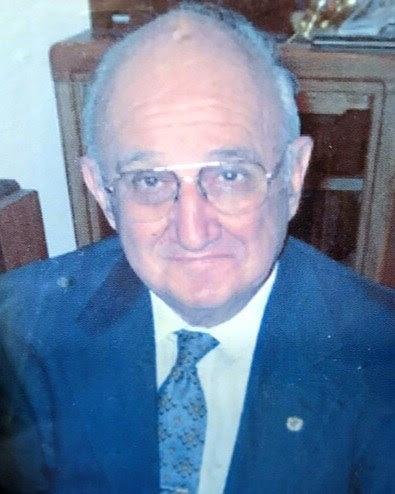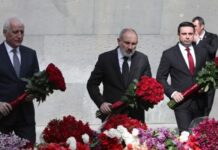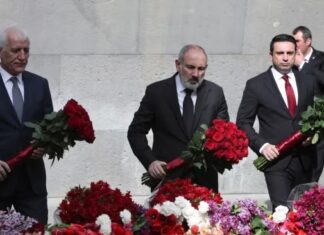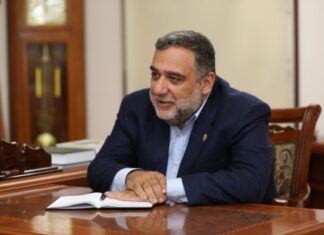MUNICH (Combined Sources) — Armenian Prime Minister Nikol Pashinyan and Azerbaijani President Ilham Aliyev met in Munich on Saturday, February 17, for talks hosted by Germany’s Chancellor Olaf Scholz.
Scholz, who also held separate meetings with Aliyev and Pashinyan earlier in the day, tweeted that “both sides agreed to resolve open issues without new violence.” He said he reaffirmed Germany’s and the European Union’s readiness to make more peace efforts.
An Armenian government statement on the trilateral meeting said Aliyev and Pashinyan agreed to “continue the work on a peace treaty” between their countries. It announced no other understandings reached by them.
The Azerbaijani news agency APA reported that Scholz left the meeting room about an hour after the start of the negotiations and they continued in a bilateral format. It said Aliyev and Pashinyan instructed their foreign ministers, who were also present at the meeting, to “continue negotiations” on the peace treaty and the delimitation of the Armenian-Azerbaijani border. The Armenian side did not immediately issue a statement on the bilateral discussions.
Azerbaijan had for months refused to hold further Western-mediated talks with Armenia, accusing the European Union and the United States of pro-Armenian bias and seeking direct contacts between the two conflicting sides.
By contrast, Yerevan insisted on continued Western mediation which has also been strongly criticized by Russia. It accused Baku of walking away from understandings reached by Aliyev and Pashinyan during their earlier encounters organized by the EU.











